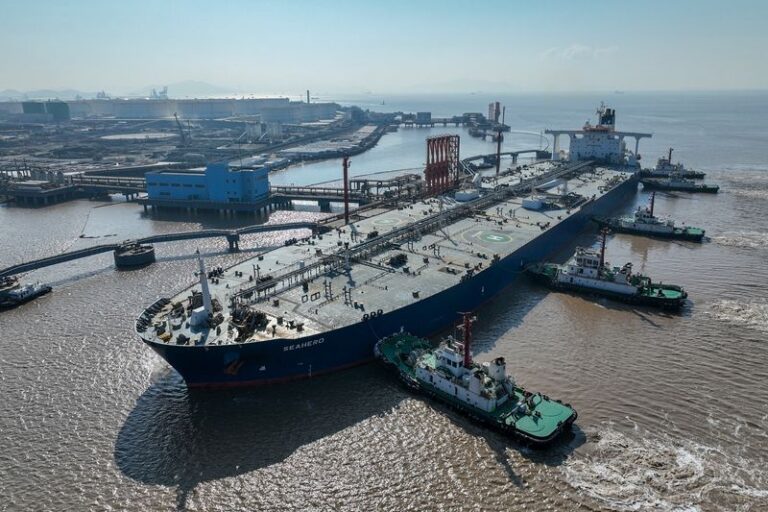By Arathy Somasekhar and Trixie Yap
(Reuters) – Oil prices fell on Tuesday on concerns that a slowing Chinese economy would weigh on demand, but the decline was limited on growing expectations that the Federal Reserve will start cutting interest rates as soon as September.
Brent crude futures were down 57 cents, or 0.67 percent, to $84.28 a barrel by 6:30 a.m., while U.S. West Texas Intermediate (WTI) crude was down 59 cents, or 0.72 percent, to $81.32.
Weak Chinese economic data “raise questions about whether market participants are becoming overly optimistic about China’s oil demand outlook,” Yep Jun Rong, market strategist at IG, said in an email.
China’s economy, the world’s second-largest, grew 4.7 percent in April-June, official data showed, its slowest pace since the first quarter of 2023 and below the 5.1 percent forecast in a Reuters poll. It also slowed from 5.3 percent growth in the previous quarter, wracked by a prolonged property slump and employment uncertainty.
“Second-quarter GDP and retail sales figures fell sharply short of expectations, while hopes for stronger stimulus measures at the Third Plenum may risk being disappointing,” Yep added, referring to a key meeting of economic leaders in Beijing this week.
In the United States, Federal Reserve Chairman Jerome Powell said on Monday that three U.S. inflation readings for the second quarter of this year “provide some increased confidence” that the pace of price growth is returning to the central bank’s target on a sustainable basis. Market participants interpreted the remarks as a sign that a shift to rate cuts may not be far off.
Lower interest rates would lower borrowing costs, which could boost economic activity and demand for oil.
Some analysts warned against getting too bullish as some U.S. macroeconomic data was weaker than expected and could indirectly hit oil demand in the near term.
“Macro factors are not favorable for higher oil prices in the near term with weak U.S. retail sales figures for June due to be released today (WTI crude oil will be capped below $85 a barrel),” Kelvin Wong, senior market analyst at OANDA, said in an email.
(Reporting by Arathy Somasekhar; Editing by Christopher Cushing and Stephen Coates)

